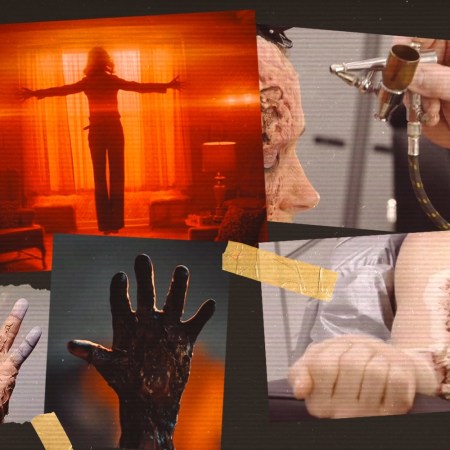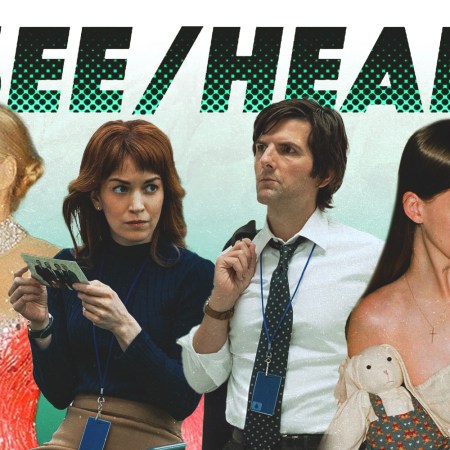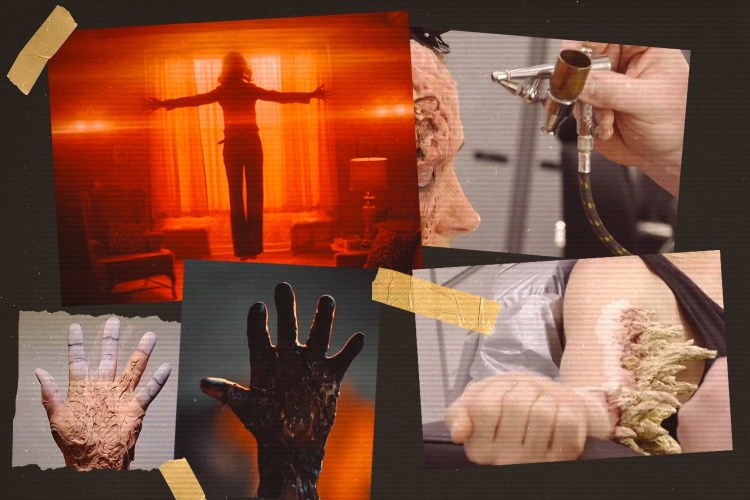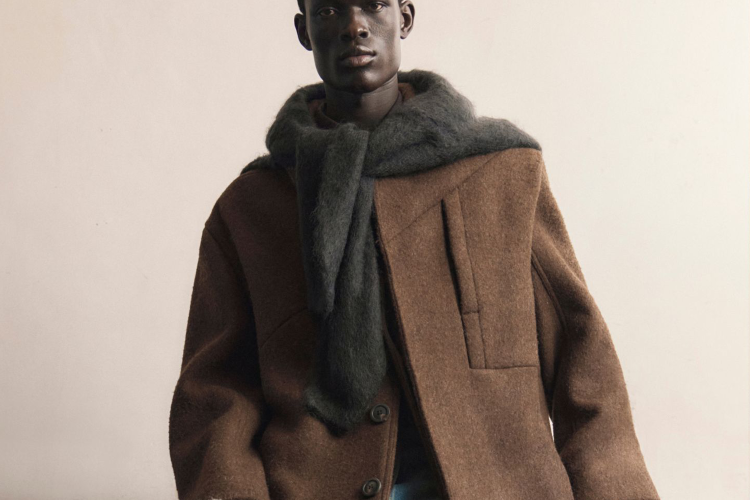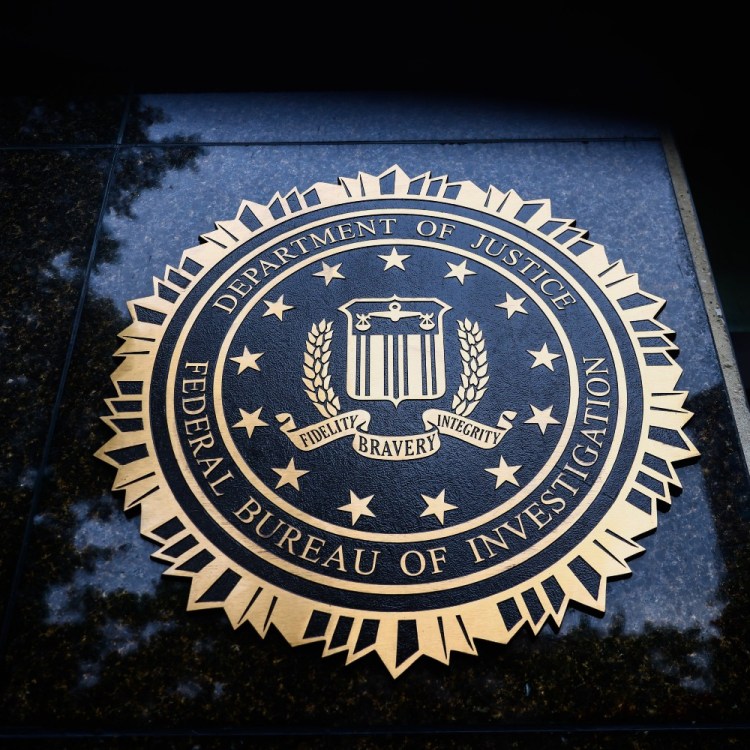On July 28, 1932, General Douglas MacArthur led the U.S. Army into action in a most unlikely location (Washington, D.C.) against an even more unlikely adversary (American World War I veterans). The confrontation brought a horrifying end to a remarkable protest that had major implications for veterans’ rights, future political movements and even race relations. Yet it is rarely discussed today.
“I’ve written 60-odd books,” said Paul Dickson, co-author of The Bonus Army: An American Epic with Thomas B. Allen. “Tom’s written 40-odd books. For both of us, it’s the biggest story we’ve handled.”
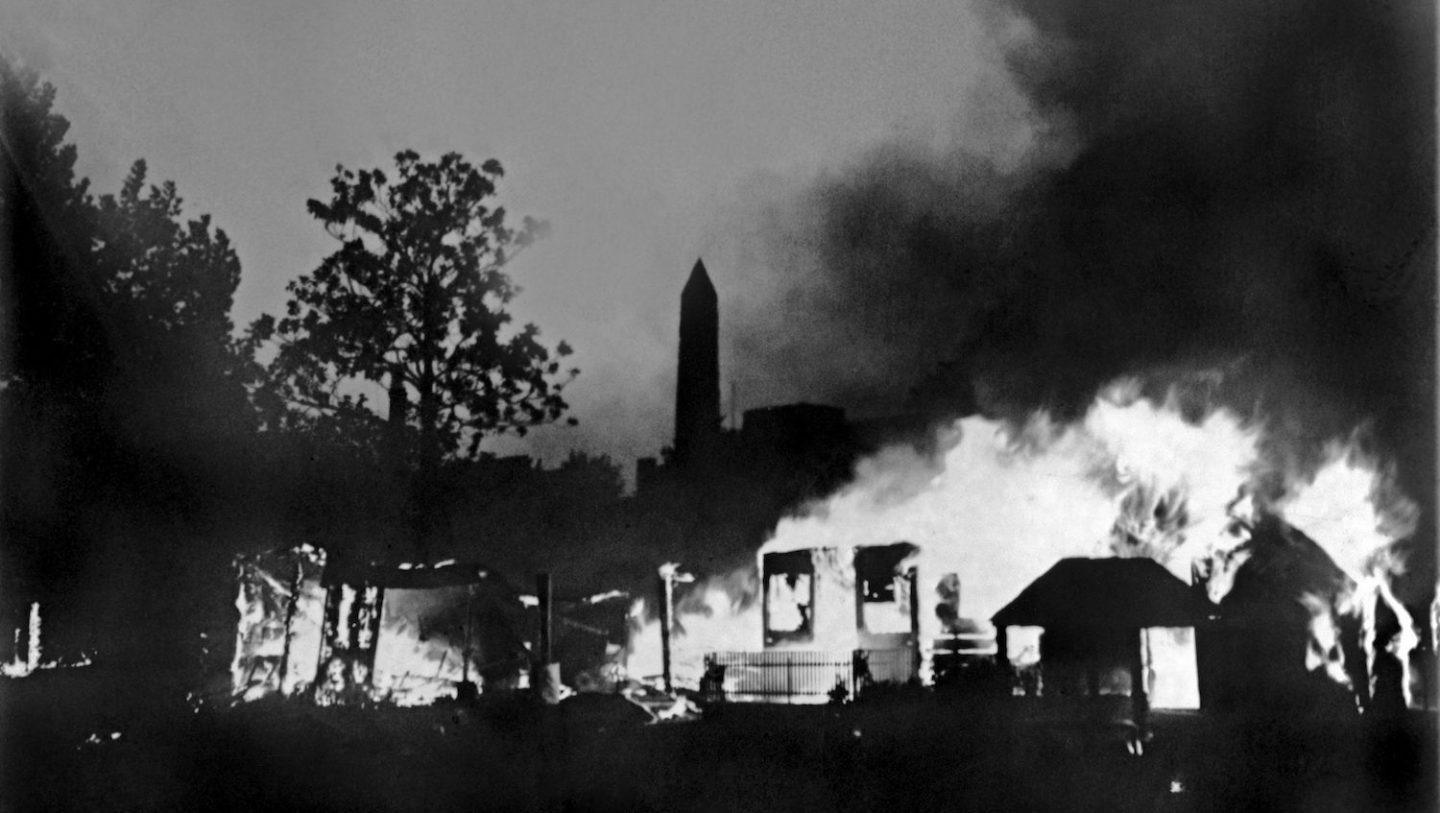
(Underwood Archives/Getty Images)
Here are reasons the Bonus Army should be far, far better known:
It marked a turning point in how our nation treats veterans. By 1932, America was deep into the Great Depression. Those who served in World War I had been promised a bonus payment, but not until 1945. Thousands of destitute veterans and their families came to Washington seeking that money ahead of schedule. Dickson estimated there may have been 60,000 people at one point.
While President Herbert Hoover came to embody opposition to the veterans’ bonus, he was hardly the first or the last commander-in-chief to stand against it. Before him, both Warren G. Harding and Calvin Coolidge vetoed legislation. Coolidge took a particularly aggressive stance, as he asserted that patriotism “bought and paid for is not patriotism.” After Hoover, Franklin Delano Roosevelt did as well.
“Presidents, historically, treated veterans badly,” Dickson said. “They went, ‘It’s your duty. You got hurt or you suffered or lost your job back home? That’s just part of what you’re supposed to do as an American.’”
The Bonus Army can be seen as the moment when people began to recognize taking care of veterans wasn’t just good for those who’d served, but the nation as a whole. (More on this momentarily.)
Police discovered a new way to handle protesters. Dickson said that, for much of our capital’s history, protesters in D.C. could expect to be greeted “with a billy club.” Washington, D.C. Chief of Police Pelham Glassford, however, took a different approach. The youngest brigadier general during World War I, Glassford believed in engagement, not aggression. Indeed, when there was a Hunger March on Washington, Glassford “got chefs from all the top hotels to cook food on the Mall and give it to the marchers.” While many did not share his approach to handling protests—for one, Douglas MacArthur—it would serve as a guide for how future rallies would be treated, notably 1963’s March on Washington.
The Bonus Army provided a model of nonviolent protesting. Dickson called Walter Waters “a nobody, just a factory superintendent who gets mad because he was promised a bonus and wasn’t getting it from Congress.” Yet the Bonus Army organizer proved to have a remarkable grasp of how a movement could put forth a positive image. He was determined to keep things peaceful: “Nobody could have weapons, nobody could drink.” He was deeply wary of more radical elements: “Waters actually had the Communists in a small camp of their own. He didn’t want to get tarred with that brush.” The Bonus Army even noted the importance of appearances, as these “destitute guys” would still try to dress up: “Every morning before the marchers would go lobby Congress, they would wash their shirts in the river and put on a tie.”
More progressive observers of the Bonus Army would have also been pleased to notice something else.
The protests were surprisingly integrated. “It just happened,” Dickson said. Hundreds of thousands of blacks had served in World War I and wanted their bonuses just like whites. Indeed, Dickson asserted some of the opposition to the Bonus came from those fearing this black economic empowerment. When they came together, an amazing thing occurred. “Tom Allen and I, as we were doing the book, we started looking at hundreds and hundreds and hundreds of photos, we kept seeing these integrated photos,” Dickson said. In fact, they found that when the men grouped themselves, they did it generally “not by race, but by state.”
This display of unity happened 16 years before Harry S. Truman’s 1948 Executive Order desegregating the military.
Veterans approach the Capitol during the Bonus March in Washington after the military had destroyed their camp. (ullstein bild/ullstein bild via Getty Images)Even so, the efforts at lobbying ultimately failed. Many veterans went home. Dickson said tensions escalated when “some Bonus guys throw a rock and a rogue policeman shoots two of them.”
MacArthur first displayed a willingness to ignore a U.S. President. Dickson said the general went in loaded for bear against the Bonus Army: bayonets, tanks, and tear gas. (Dickson noted it was a “much more powerful tear gas than we think of today.”) He also reported he and Allen interviewed now grown children present during the time of the Bonus Army and they “suggested that part of MacArthur’s rancor and anger was seeing this integrated unit.”
Unsurprisingly, the Bonus Army was driven all the way back to their campground on the other side of the river. At this point, MacArthur’s Chief of Staff (and the future Supreme Commander of Allied Forces and U.S. President) Dwight Eisenhower told him they had orders from the president not to cross the bridge.
“MacArthur says, ‘We’re at war—I can’t be bothered by written orders,’” Dickson reported. A journalist was able to convince MacArthur to delay his advance for an hour to give the camp time to evacuate, warning MacArthur “women and children and veterans are going to die.” (Dickson and Allen interviewed people at the camp who were “kids at the time who said, ‘We ran for our lives. We thought we were dead.’”)
At which point the army moved in with the “equivalent of flamethrowers” and “burned down the village.” Dickson also clarified, “There were no casualties, despite what you read on Wikipedia.”
MacArthur’s refusal to accept presidential authority was more famously displayed in 1951, when Truman fired the then five-star general.
Having routed the Bonus Army with a shocking display of military force, MacArthur did just what you’d expect: talk to the media.
“After he drives them out, around midnight MacArthur holds a press conference and says, ‘We’ve averted a calamity in this country,’ and thanks Hoover for giving him the power to do so,” said Dickson. MacArthur had even ordered Eisenhower to put on his formal military attire. (This was a particular slap at Hoover, who was a Quaker and did not “want people running around town in military uniforms.”) Dickson said Eisenhower’s son John recalled decades later how his father came home to change “furious” and “cursing.” Indeed, Eisenhower developed a lifelong contempt for MacArthur, reportedly saying in 1954, “I just can’t understand how such a damned fool got to be a general” and also referring to him as a “dumb son of a bitch.”
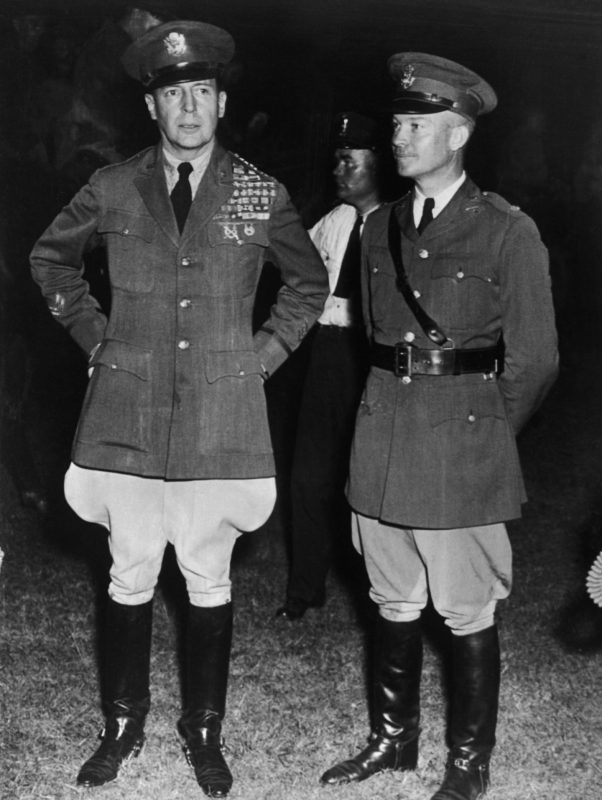
Yet MacArthur had made a public relations miscalculation. He didn’t realize that new forms of media were making it harder to control the message. The emergence of radio ensured people suddenly had far faster access to information. And newsreels made it so that Americans could actually see what was happening. Indeed, Dickson said that even when newsreel commentators went along with MacArthur’s assessment of “rebels who came to occupy the nation’s capital,” viewers could watch the way people they regarded as heroes from World War I were being treated and be appalled.
One man who did understand what was happening was FDR. Dickson reported that, upon seeing a front-page story on the attack on the Bonus Army, the Democratic presidential nominee mused victory was so secure he didn’t even have to run against Hoover anymore. (He wasn’t wrong, as he won over 57 percent of the vote and 472 electoral votes to Hoover’s 59.) Roosevelt went on to display a mastery of radio with his Fireside Chats. And above all, he learned from Hoover’s biggest misstep.
The Bonus Army proved the importance of engaging. Dickson said that Hoover’s greatest mistake with the Bonus Army was refusing even to talk to them. When struggling veterans returned during the Roosevelt administration, FDR took a different approach and had Eleanor meet them. As Bonus Army members noted: “Hoover sent the army. Roosevelt sent his wife.” Dickson noted Roosevelt also gave them “a chance at the Civilian Conservation Corps” public works program, an offer that was irresistible to many of the desperately poor marchers.
In time, even Roosevelt’s opposition to the veterans’ bonus would fade. Why?
America understood the economic value of assisting veterans because of the Bonus Army. As World War II progressed, Dickson said that Roosevelt realized that “this time it’s going to be 17 million coming back.” What would happen if those veterans faced the same fate as the World War I vets did? “It’s going to create a new Depression if you throw those people out on the streets without education, the ability to buy a farm, buy a house, or start a business.” The result was on June 22, 1944, FDR signed the GI Bill, providing returning soldiers with money for education, housing, and insurance. The government had decided caring for veterans made sense financially as well as morally.
Of course, 1944 also saw FDR elected for the fourth time. As he acknowledged, he owed his initial election in large part to the Bonus Army, marking a remarkable reversal of a presidential election trend. A third legendary World War II leader was involved in the attack on the Bonus Army: George S. Patton. Dickson said that Patton later noted that when the forced evacuation of the Bonus Army began, he knew America would elect a Democratic president.
Patton’s prediction proved not only true but long lasting. Republicans had occupied the presidency since 1921 and won the last three presidential elections. Now Democrats were about to take the White House and hold it for two straight decades, as FDR won four terms and Truman added a fifth. Indeed, Republicans only took back the presidency thanks to the immense popularity of MacArthur’s former Chief of Staff, Dwight Eisenhower.
Taken all together, it’s easy to understand why what Dickson termed “the most untold story of the Depression” still desperately needs retelling. Watch footage of the Bonus Army below.
[Full disclosure: The author of this piece worked on a musical about Herbert Hoover.]
This article was featured in the InsideHook newsletter. Sign up now.




